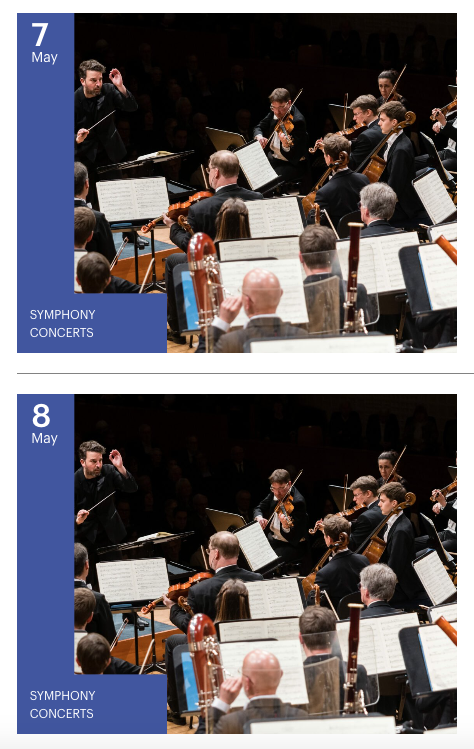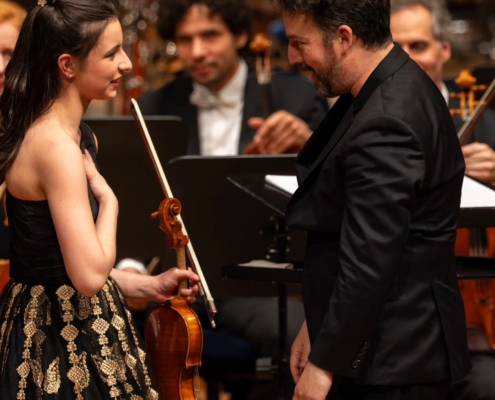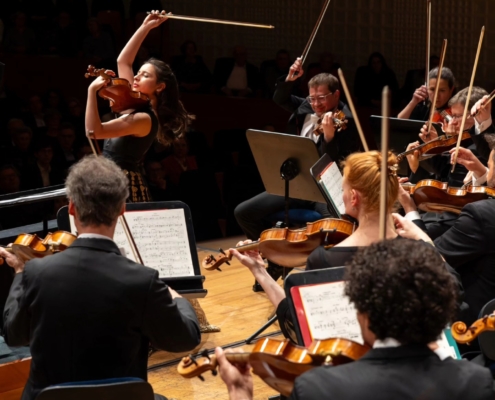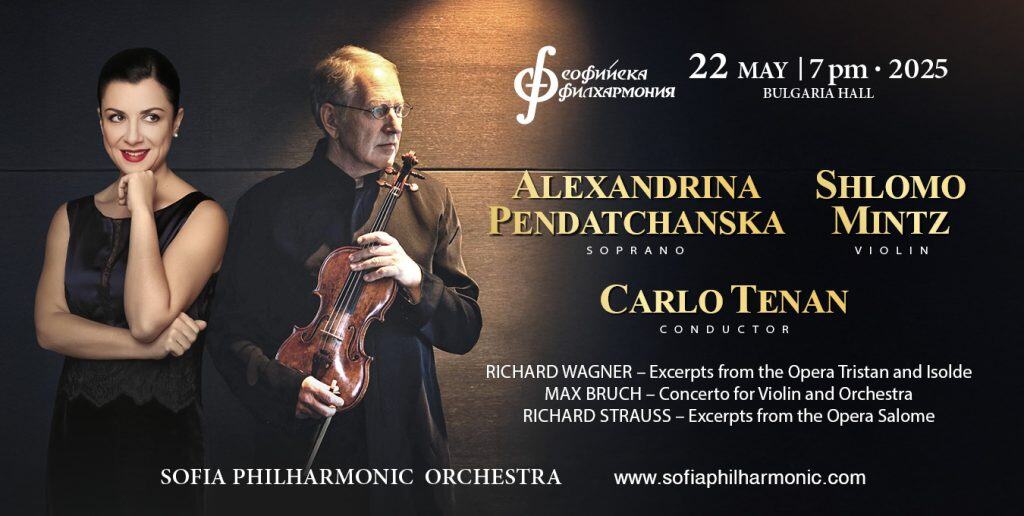TESTESTSTSTSTS
STSTSTST
STSTST
PILAR POLICANO
Arthur Waser Prize-Winner’s
Conductor: James Gaffigan
Lucerne Symphony Orchestra
PROGRAM
I
Richard Strauss (1864 ‒ 1949)
Serenade for Wind Instruments, Op. 7 | 10 ’
Erich Wolfgang Korngold (1897 – 1957)
Violinkonzert D-Dur op. 35 | 25 ’
II
Sergej Rachmaninov (1873 ‒ 1943)
Symphony No. 1 in D minor, Op. 13 | 42 ’
![]()
This is how it happened:
Luzerner Zeitung | Diana Sonja Tobler
” Pilar Policano achieved a double triumph: she won the 25,000 Swiss franc prize from the Arthur Waser Foundation, as well as the audience’s acclaim for her performance with the Lucerne Symphony Orchestra.
Cinematic Romance and Classical Virtuosi
Korngold lived in the United States following his forced exile to the country. As a film music composer, he brought the symphony orchestra into a realm previously dominated by pianists and solo instruments. By returning to classical forms, he infused Hollywood music into his violin concerto. From the very first measure, Policano delights us with a melody Korngold had already used in the soundtrack of the melodrama Another Dawn, where longing, love, and death are intertwined.
In addition to the many generously soaring lines offered by the concerto—rendered by Policano with an almost shimmering vibrato—there are also daring passages and extended sequences of double stops and chords that pose a significant challenge. Policano navigates the many zigzagging turns with determination, sails through the virtuosic cadenza with a golden-toned approach, and concludes with soft, airy, and delicate final chords.
Although the large orchestra occasionally takes up too much space, there is still room for the jazz-like whispering of the second movement. Then comes a section reminiscent of a rodeo in the Allegro assai vivace: countless striking, accented chords— a true display of bowing physics. Policano overreaches only slightly a few times, briefly breaking the tone. Heroic horns, timpani, and basses join in all at once, before the starry sky of Hollywood romantically gleams one last time, and the virtuosic rocket launches into the final stretch.
Extended in Time and Volume
A final D with two chords is not enough to break the spell. Policano offers an encore: Estrellita by Manuel Ponce, followed by Paganini’s Caprice No. 5, and one more encore—Applemania by Aleksey Igudesman—once again combining the elements that make the concert so thrilling: masterfully controlled, relentless virtuosity and intentionally sensitive, tasteful music. With this marathon, she also proves an unexpected level of stamina.”





